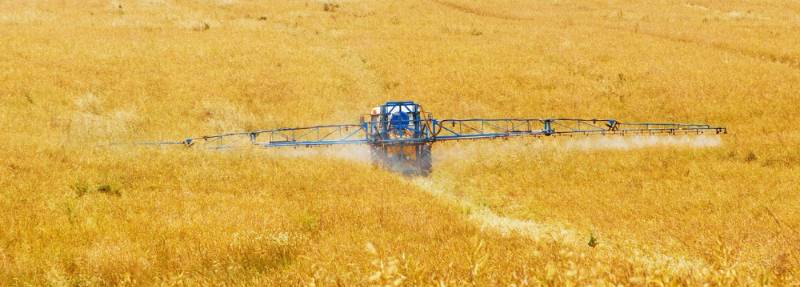Agricultural Worker Protection Standard
Background
The United States Environmental Protection Agency’s (EPA) Worker Protection Standard (WPS) was implemented in 1995 in order to reduce worker and handler exposure, illness and injury due to pesticide use. Over 2 million people are covered by WPS at over 600,000 operations. The basic requirements of owners and employers under WPS include providing protection to workers and handlers from pesticide exposure, training workers and handlers on pesticide safety, and mitigating pesticide exposure. Both restricted use and general use pesticides are covered under WPS regulations.
Does WPS apply to you?
There are three criteria which must be true for WPS to apply on an establishment. They are:
- The pesticide used must have an 'Agricultural Use Box' on the label.
- The application of the pesticide must be for the production of a commodity or agricultural plant.
- The site meets the definition of agricultural establishment.
If all three criteria are true you have responsibilities under WPS. Find more detailed information on the WPS for Employers page.
WPS Information
There are three basic principles of the WPS including informing employees of pesticide exposure, protecting employees from pesticide exposure and providing mitigation for pesticide exposure.
Inform
An agricultural employer must inform their employees about potential pesticide exposure through the following mechanisms:
- Pesticide safety training
- Pesticide safety information
- Access to pesticide application and hazard information
- Notify workers of treated areas
- Exchange information
Protect
An agricultural employer must protect employees and others from pesticide exposure by following the guidelines below:
- Exclude people from treated areas
- Exclude people from the Application Exclusion Zone (AEZ)
- Exclude workers from REI areas
- Do not employ those under 18 years of age
- Prohibit handlers from applying pesticides in a harmful way
- Protect handlers during tasks
- Provide PPE
- Protect early-entry workers
Mitigate
An agricultural employer must provide their employees with ways to mitigate pesticide exposure including:
- Decontamination supplies
- Eye wash water
- Emergency assistance.
Any establishment involved in growing, maintaining, or producing agricultural plants for commercial, research or experimental purposes are covered under WPS. These include:
- Crop producing agricultural establishments
- Farms and forest operations
- Nurseries
- Dairy farms who produce hay for their cattle
- Golf courses who produce sod/ornamentals to be planted within the golf establishment
- Public or private establishments who produce plants for use elsewhere in their establishment including theme parks, governments, and hotels
- Prisons with agricultural plant production
- Establishments which research agricultural plants
- Educational agricultural production programs
- Straw production or harvesting operations
- Government owned or managed agricultural operations
- Commercial pesticide application operations
Both general use and restricted use pesticides are covered by the WPS. Pesticides which contain an 'Agricultural Use Requirements' box under the 'Directions for Use' section on the product label are covered under the WPS. Pesticide labeling may conflict with the WPS; follow the pesticide label instructions over the WPS.

